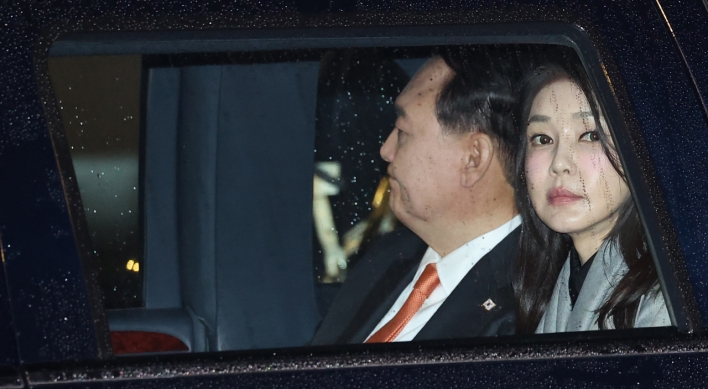Commissions of the Ministry of Strategy and Finance and the Prime Minister’s Office have been apparently locked in confrontations over the lottery sales cap imposed by the latter, according to industry sources on Monday.
Last month, the Lottery Commission, which is under the wing of the Finance Ministry, asked the National Gaming Control Commission, a gambling regulator of the Prime Minister’s Office, for an elimination of the sales ceiling.
The Lottery Commission suggested that lotteries do not pose as high a risk of addiction to consumers as other types of gambling or entertainment such as casinos and horse racing.
The rate of lottery addiction stood at 10.9 percent of those who play, the lowest compared to 41.5 percent for addiction to horse racing and 36.9 percent for casinos for domestic consumers last year, according to the National Gaming Control Commission.
However, the Gaming Commission refused the Lottery Commission’s request, saying that its profit would remain the same even if the regulatory cap on lottery sales were abolished, maintaining its long-standing position on preventing gaming addiction.
The gaming regulator imposed a ceiling of 3.31 trillion won ($2.9 billion) in lottery sales this year over the Lottery Commission’s 2013 sales target of 3.29 trillion won last month.
With its sales cap higher than the Lottery Commission’s sales target, the NGCC suggested that it does not need to eliminate the ceiling for this year.
Korea’s lottery ticket sales hit an all-time high in 2012, exceeding the regulatory limit imposed by the gambling watchdog for two consecutive years.
Lottery sales reached some 3.2 trillion won in 2012, up about 3.4 percent from 3.08 trillion won a year earlier. It surpassed the 2.8 trillion won limit set by the National Gaming Control Commission.
The gambling watchdog had previously refused the Lottery Commission’s sales cap elimination requests in early 2011 and in 2012.
It sets a regulatory limit on sales each year for the gaming industry as part of efforts to prevent and curb gambling addiction, and considers lottery part of it as people bet on it while the probability of winning big is extremely low.
By Park Hyong-ki (hkp@heraldcorp.com)
Last month, the Lottery Commission, which is under the wing of the Finance Ministry, asked the National Gaming Control Commission, a gambling regulator of the Prime Minister’s Office, for an elimination of the sales ceiling.
The Lottery Commission suggested that lotteries do not pose as high a risk of addiction to consumers as other types of gambling or entertainment such as casinos and horse racing.
The rate of lottery addiction stood at 10.9 percent of those who play, the lowest compared to 41.5 percent for addiction to horse racing and 36.9 percent for casinos for domestic consumers last year, according to the National Gaming Control Commission.
However, the Gaming Commission refused the Lottery Commission’s request, saying that its profit would remain the same even if the regulatory cap on lottery sales were abolished, maintaining its long-standing position on preventing gaming addiction.
The gaming regulator imposed a ceiling of 3.31 trillion won ($2.9 billion) in lottery sales this year over the Lottery Commission’s 2013 sales target of 3.29 trillion won last month.
With its sales cap higher than the Lottery Commission’s sales target, the NGCC suggested that it does not need to eliminate the ceiling for this year.
Korea’s lottery ticket sales hit an all-time high in 2012, exceeding the regulatory limit imposed by the gambling watchdog for two consecutive years.
Lottery sales reached some 3.2 trillion won in 2012, up about 3.4 percent from 3.08 trillion won a year earlier. It surpassed the 2.8 trillion won limit set by the National Gaming Control Commission.
The gambling watchdog had previously refused the Lottery Commission’s sales cap elimination requests in early 2011 and in 2012.
It sets a regulatory limit on sales each year for the gaming industry as part of efforts to prevent and curb gambling addiction, and considers lottery part of it as people bet on it while the probability of winning big is extremely low.
By Park Hyong-ki (hkp@heraldcorp.com)



![[AtoZ Korean Mind] Does your job define who you are? Should it?](http://res.heraldm.com/phpwas/restmb_idxmake.php?idx=644&simg=/content/image/2024/05/06/20240506050099_0.jpg&u=)














![[K-pop's dilemma] Is Hybe-Ador conflict a case of growing pains?](http://res.heraldm.com/phpwas/restmb_idxmake.php?idx=642&simg=/content/image/2024/05/07/20240507050746_0.jpg&u=)